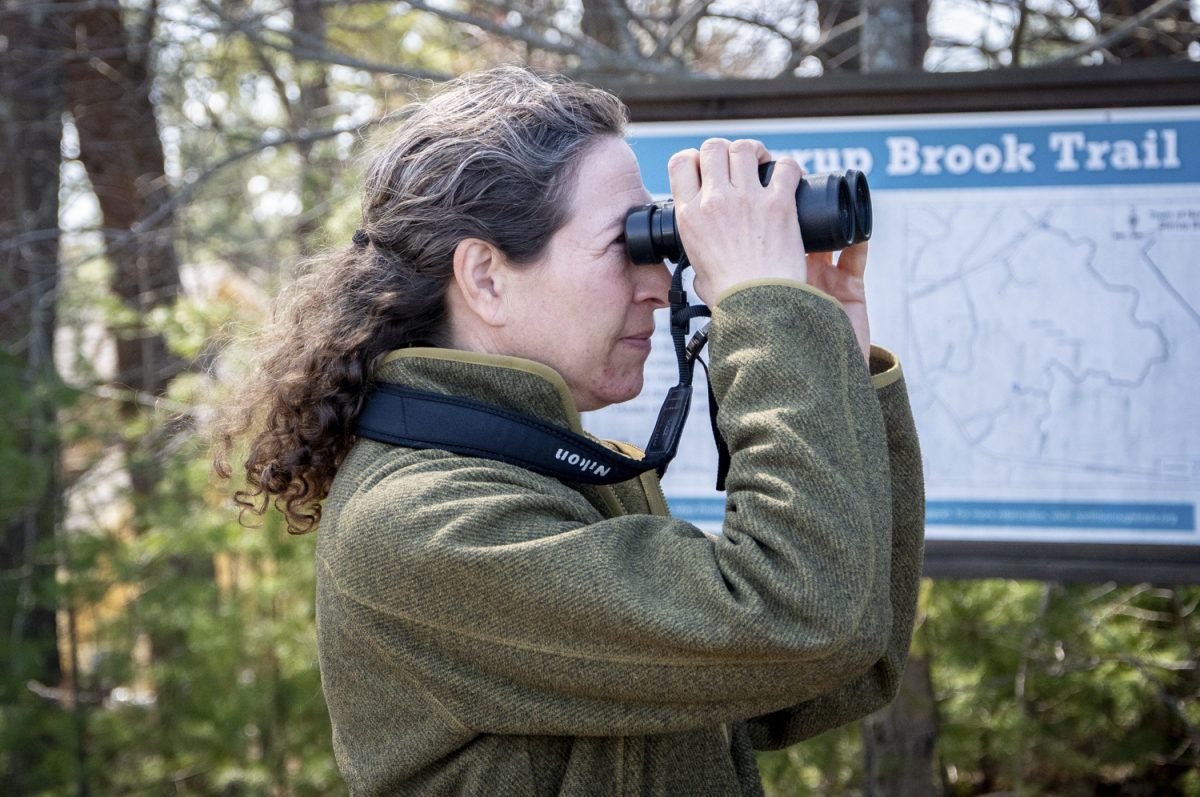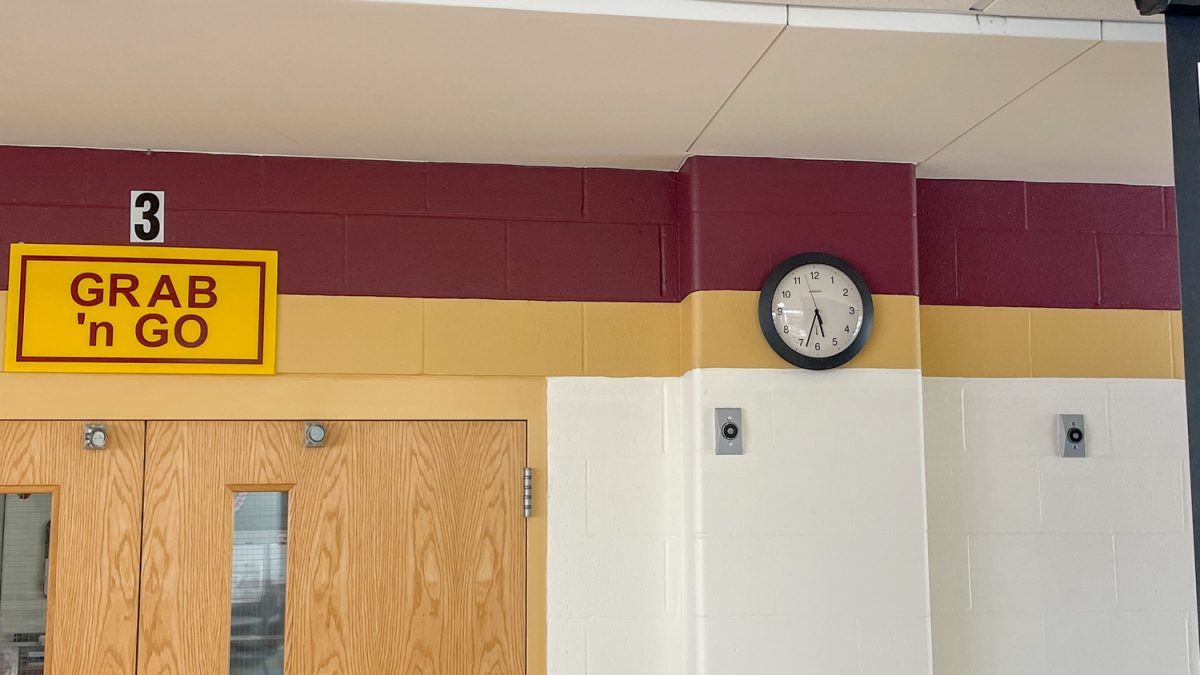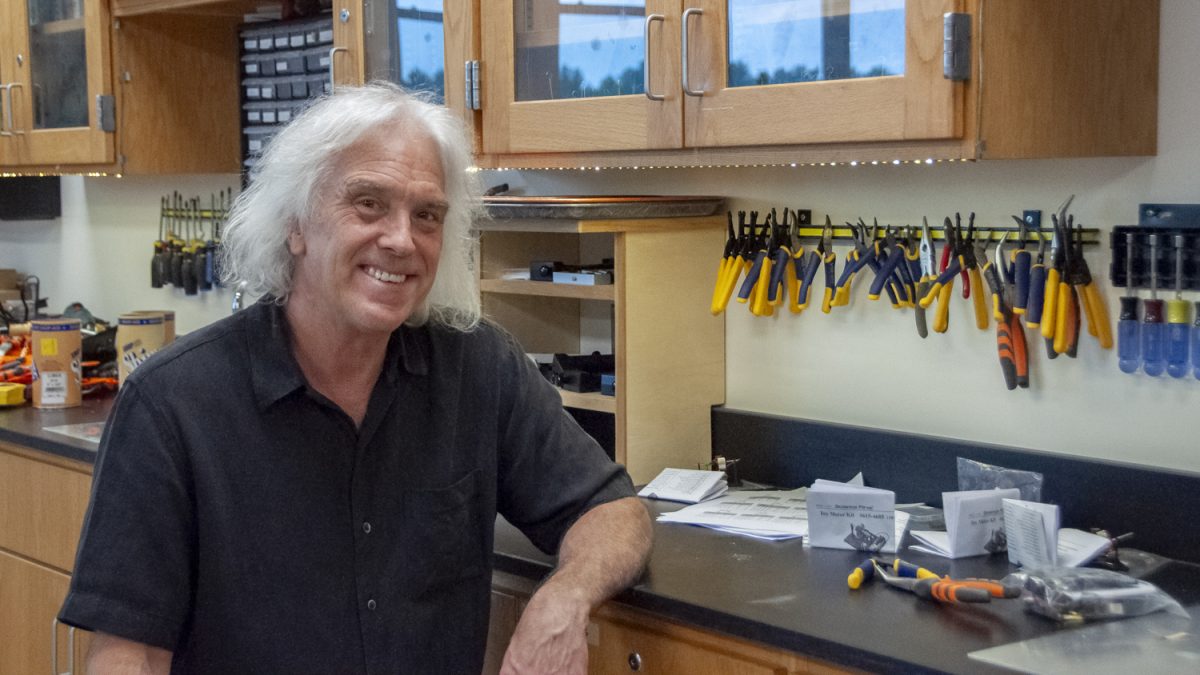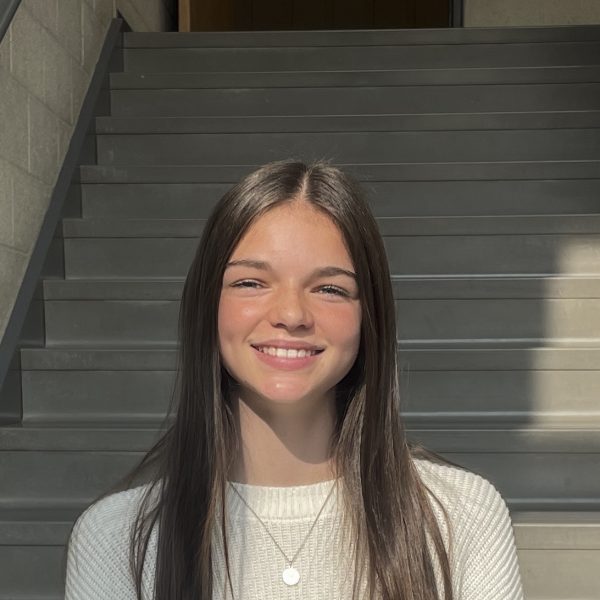When she’s not in the classroom, one can most likely find English teacher Valerie Burdette outside walking in the woods or along a shore, eager to spot a new species of bird to add to her list of hundreds.
Burdette is an avid birder who fell into the hobby through a series of random events. In March 2019, after hearing about a local birding hot spot in Bolton, she and an ornithologist friend decided to check the site out. Burdette didn’t even bring binoculars, something she now considers a birding essential.
“There were some great things out there,” Burdette said. “[We saw] Snow Geese and Sandhill Cranes and Bald Eagles, and it got me hooked.”
Burdette spends much of her free time birding, and tries to carve out space in her life for it.
“At least one weekend day I will typically spend all day birding, and sometimes that’s sunrise to sunset,” Burdette said.
In the six years since Burdette discovered her passion for birding, she has observed 421 different species throughout New England and Canada, with most of them being in Massachusetts. Some of these birds include locally rare species such as the Pink-Footed Goose and the Spotted Towhee. Burdette keeps track of her sightings by logging each bird she sees on the website eBird.org, which is managed by the Cornell Lab of Ornithology.
“[eBird is] also a citizen’s science project, so your observations are also contributing to this data that scientists can use,” Burdette said.
Another citizen’s science project Burdette participates in is the International Shorebird Survey. First organized in 1974 by the nonprofit organization Manomet, the International Shorebird Survey seeks out birders in the western hemisphere willing to go to their local wetlands or beaches to count shorebirds and submit their data. Lisa Schibley, the North American coordinator for the project, believes birds are innately interesting to many people.
“Birds are one of the parts of nature that people have been enthralled with forever,” Schibley said. “Birders are obsessed with birds, but even people who aren’t birders are interested in birds because they’re bright, they’re colorful, they’re active, they’re everywhere.”
Schibley has known Burdette for four years and has thought highly of her since the first time they met.
“She was sharp and bright and smart and fun,” Schibley said. “I was very impressed with her enthusiasm and her ability to give 100 percent of her efforts to birding.”
Since she began volunteering for the International Shorebird Survey in 2022, Burdette has not only sent useful local data, but has scoped out potential new sites. One of these locations was Morris Island in Chatham.
“By her covering that area and saying, ‘Oh look, there’s a lot of shorebirds here,’ that helps me figure out that, ‘Oh maybe I need a volunteer to cover there,’” Schibley said.
Burdette has additionally found community through birding. She is on the board of the Boxborough Birders club, and is a member of both the Brookline Bird Club and the Forbush Bird Club.
“There are whole groups of people that I would not have met if it weren’t for birding,” Burdette said.
Birding has also given Burdette the opportunity to travel more.
“For a while I was trying to go somewhere new every week, and I think I still do a pretty good job with that,” Burdette said. “It doesn’t have to be someplace far away or spectacular, it can be some conservation area that I’ve never been to before.”
In February 2023, Burdette traveled to Georgetown, Maine alongside three friends to see a Steller’s Sea Eagle, which is typically found in coastal northeastern Asia and can have a wingspan of over eight feet. To this day, it is the rarest bird Burdette has observed.
“There were people three or four rows deep standing on this bridge in Maine looking at [the Steller’s Sea Eagle], ” Burdette said. “That was very cool.”
While she mostly travels within New England, Burdette occasionally ventures outside of the area. She once went up to New York state to see a Taiga Bean Goose, and to Quebec, where she saw Willow Ptarmigans, a Great Grey Owl and Canada Jays. Through her membership with the Brookline Bird Club, Burdette was also given the opportunity to go on an off-shore overnight pelagic (open sea) trip.
“You’re going 100 miles off the coast of Nantucket and staying in a boat overnight, which is not so great in terms of seasickness or comfort—it actually can be really bad—but in terms of seeing birds that you would not get to see anywhere else…it’s very cool,” Burdette said.
In the future, Burdette would like to travel further to places like Florida to see new birds; however, she doesn’t necessarily have any short-term plans to do so. What Burdette does have plans for is to continue birding locally.
“I’d love to see more birds in Massachusetts that I haven’t seen before, but obviously the more species that you see, the more challenging that becomes,” Burdette said.
At the end of the day, it is the simple aspects of birding Burdette enjoys the most.
“One thing I really like about [birding] is when it’s good, you kind of get in the zone,” Burdette said. “You just focus on that, and forget about everything else.”












